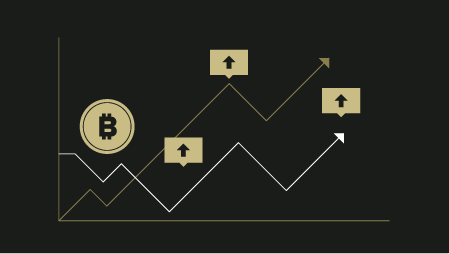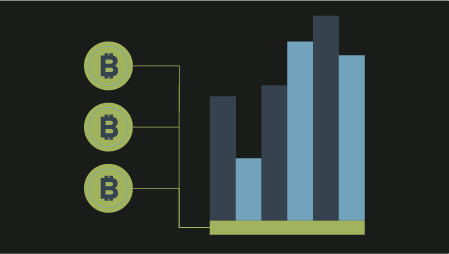Ready to learn Big Data technology? Browse Banking, Finance, and Insurance Industry Track courses developed by industry thought leaders and Experfy in Harvard Innovation Lab.
In the stormy sea of digital disruption, embracing innovations is not a choice anymore. To stay successful and competitive, both FinTech software developers and large financial services companies need to catch the waves of digitization. However, they should ride them with caution.
To remain the industry leaders, businesses channel their effort into FinTech software development and adopting the emerging financial technologies as their key areas of investment focus. Blockchain, Artificial Intelligence, Data Science, and Biometrics are the core ones.

Source: PWC Global FinTech Report
However, financial technology development abounds in complex technological demands as compared to other industries.
Key challenges FinTech software developers face
Oftentimes, FinTech startups want to start fast and test the viability of their business ideas. Placing time-efficiency as their priority, they may underestimate the importance of being ready to meet high tech demands in some time. Thus, if the idea works out well and businesses start growing, they may face an acute challenge of scalability. Such businesses start growing with the solution that doesn’t meet their current tech demands. In many cases, only companies which know that they will have to withstand high loads (e.g, big banks with many users) comply with all the tech demands when they design their solutions.
So it’s crucial to be aware of key technological challenges before you start:
- FinTech businesses need to meet two conflicting demands: transactions should be quick and reliable. If transactions are fast, it’s more challenging to make them accurate and vice versa. Distributed systems and high loads make the task even more complicated.
- The value of data and accuracy is huge.
- To ensure solid back-up and prevent data loss, it should be duplicated.
- Completion of FinTech transactions must be guaranteed.
- A financial transaction is a package of several operations. If one operation fails (e.g. the money is not withdrawn) – several other operations fail too.
- There is a challenge of scalability when the number of users and transactions is constantly growing and you need to withstand high loads.
While developing FinTech solutions for Lebara, CurrencyCloud, and Ratesetter, we’ve encountered the challenges. Based on the experience, our FinTech software developers have shared their advice and recommendations on what you should be aware of when implementing such FinTech technologies as Data Science, AI, Blockchain, Biometrics, etc.
5 innovations FinTech software developers need to be ready to adopt:
-
Digital currency transactions
Companies which perform cross-border b2b payments or digital lending money must understand that in some time people will start transferring or lending digital money like Bitcoin on a regular basis. Though now the ICO market is a Wild West and faces many regulation and security issues, it is predicted to get regulated and will get incorporated into the overall financial ecosystem. For instance, in our FIX digital transformation framework, we don’t advise banks to focus on tokens just yet. Thus some digital currencies will be widely circulated, with Bitcoin leading the positions. For instance, the Goldman Sachs Bank is investigating the possibility of performing Bitcoin transactions. To get ready for performing transactions of digital currencies, you need to build distributed ledger systems or blockchains.
-
Distributed ledger systems and blockchain
One of the most promising yet challenging FinTech technologies you need to implement is Blockchain.
Blockchain has numerous solid benefits such as:
- Decentralization;
- Immutability of records;
- Fault tolerance;
It’s a good idea to use blockchain if your FinTech company meets the following conditions:
- You need a distributed ledger system shared by several members, in which each member of the blockchain is able to add a new record;
- The recorded data is not subject to changes;
- You are ready for high costs of development.
However, blockchain and other distributed ledger systems face an acute problem of scalability and the limited number of simultaneous transactions. In blockchain, consensus on information must be reached among all the ledger members. That means the transaction data are open to other blockchain members.What’s more, it is time-consuming to get a transaction validated by all the ledger members.
Read this article to learn in which cases you shouldn’t use blockchain.
To alleviate the aforementioned problems, Corda is used by many financial institutions. It is a shared ledger platform designed to record, manage and automate legal agreements between business partners. It solves scalability and privacy issues since it requires consensus only between the transaction participants.
-
Data Science, BI, and Analytics
Data Science is one of the crucial technologies for FinTech businesses, especially when we are talking about B2C operations and myriads of daily transactions. It creates great opportunities for data analysis and customer insights.
In fact, Data Science in FinTech helps to solve such problems and enhance such areas as: risk assessment, identifying customer transaction habits, omnichannel fulfillment and targeting, fraud prevention, and more. If we are talking about B2C operations, with so many transactions, it creates great opportunities for data analysis and customer insights.
However, there are several challenges you may face:
- Identifying reliable and trustworthy information. The challenge becomes even greater with cross-border transactions, with each country presenting their own obstacles such as regulations and compliance obligations.
- There is a large amount of data to be stored and processed, even if it has no value about it. Cloud-based data storage will help to solve the problem.
- If the bank or a financial company is international and has operations in different time zones, data storing and processing will take a lot of time, and you need huge capabilities.
- You shouldn’t underestimate a good user interface for not a tech expert to be able to have access to the data if needed.
To meet the challenges, you need experienced Data Scientists with solid knowledge of AWS cloud services, Data Science, Big Data, Analytics, and BI.
-
AI capabilities
AI is now getting very popular, and everybody wants to leverage its opportunities. There are many plug-and-play AI solutions (e.g open source Google, FB solutions). Artificial Intelligence is currently getting so much hype about it that the customers’ expectations towards it are soaring. However, experts say its capabilities are still quite limited.
In fact, AI has a huge potential but to make a real breakthrough, you need a group of experts, complex algorithms, and several years of research ( such as done by Google and FB). If somebody tells you that they will provide you with a fascinating AI solution within a tight budget and during a short period of time, you are probably offered something quite simple served under the sauce of AI.
-
Biometrics
Adoption of biometrics is becoming commonplace. The new study findings by Juniper Research have revealed that the number of mobile payments authenticated by biometrics will go up to about 2 billion this year, up from just over 600 million in 2016. It offers such benefits as enhanced security, usability, and more.
Biometric authentication in FinTech is planned to be leveraged in a wide range of banking scenarios, including withdrawing cash from ATM’s, identity proving when calling a bank and authenticating mobile bank apps. A combination of face and voice biometrics will also fulfill Know Your Customer (KYC) and Anti-Money Laundering (AML) measures when accessing web-based eBanking services.
The biggest challenge with biometrics is that people may be reluctant to use it. However, when performed and presented in the right way, biometrics can help to achieve the much wanted combination of security and convenience.
Wrap-up
To stay competitive and successful, both FinTech software developers and financial companies need to catch the waves of digital disruption and learn how to ride them right. To keep up with the finnovation pace, businesses are adopting the emerging technologies such as Data Science, AI, digital currency, Blockchain, Biometrics, and more. However, they may turn out to be intricate and present challenges you need to be ready to embrace. We hope our tips will help you to implement FinTech innovations with sense and caution.




